Everything You Need to Know Before You Buy the New iPad Pro


In the live taping of episode 96 following Apple's iPad event in Brooklyn, Donna, Sarah, and David tell you all the important details about the new iPad Pro line in order to help you make your purchase decision. Are Face ID, an edge-to-edge display, and an Apple Pencil that charges wirelessly enough to make the new tablet worth the expensive price tag? Also, tune in to hear why David thinks the newly released MacBook Air missed the mark.
Click here to listen and subscribe. If you like what you hear, be sure to leave a review. And remember to tune in every other week to hear our editors share with you the latest Apple news, best apps, iPhone tricks, and coolest accessories.
Question of the week:
Are you planning to buy a new iPad? Why or why not? If you're buying one, which model do you plan to get? Email podcasts@iphonelife.com to let us know.
Articles referred to in this episode:
- Everything Announced (& Unannounced) at Today's Apple Event
- Apple's New iPad Pros Have Full-Screen Displays, Face ID, USB-C, Updated Apple Pencil
- All the Pre-order & Release Dates for the New iPad Pros, Macs & Accessories Apple Announced Today
- Apple’s New iPad Pro Accessories Include Apple Pencil 2, Smart Keyboard Folio & USB-C Port, but No More Headphone Jack
-
Useful links:
- Join the iPhone Life Facebook Group
- Insider Walk-Through: Get a Sneak Peak of Members-Only Benefits
- Become an iPhone Life Insider
- Sign up for the free Tip of the Day Newsletter
- Email the Podcast
- Subscribe to iPhone Life magazine
Transcript of Episode 96
Donna Cleveland: Welcome to the 96th episode of the iPhone Life Podcast. I'm Donna Cleveland, Editor in Chief at iPhone Life.
David Averbach: I'm David Averbach, CEO and Publisher at iPhone Life.
Sarah Kingsbury: I'm Sarah Kingsbury, Senior Web Editor.
Donna Cleveland: We have fun live podcast for you today, right after the Apple announcement that was held in New York. It was a special iPad Pro and MacBook focused announcement. Apple, I think, at least as long as I have been following Apple stuff, has not had an announcement in New York.
David Averbach: No.
Donna Cleveland: This was really interesting.
David Averbach: They're branching out. They did Chicago earlier this year, New York. We're all over the U.S. It's crazy.
Donna Cleveland: With this podcast, stick around to not only get a recap of everything Apple announced and our analysis of what was announced, but also for a lot of the main questions we think a lot of you are gonna have, we're going to try to answer. Should you buy the new iPad Pro? Who should buy it? Is it a computer replacement? Does the Apple Pencil work with older iPads? All those kinds of little details we will get to in this episode, so stick around.
David Averbach: We're branching out a little bit. We're gonna talk about Macs. Traditionally we are iOS centric, but today's announcement was so Mac oriented as well, that we're gonna touch on that a little bit.
Donna Cleveland: Before we jump into that, I just want to make sure, for any of you that don't know, I wanted to tell you about our Daily Tips newsletter, and about our Insider program. Our Daily Tips newsletters is our free product. You can sign up at iphonelife.com/dailytips. Rayanne will post a link here in the comments, so if you want to go check that out.
Donna Cleveland: With our Daily Tips newsletter, you can learn something cool you can do with your device in just one minute every day. We'll send you an email that will have step-by-step instructions with screenshots that makes it really easy, and a fun low commitment way to learn more about your device.
Donna Cleveland: Our Insider membership, this is our premium educational service for people who want to feel empowered with their devices. Whether you have an iPhone, iPad, HomePod, Apple Watch, this is where you want to go to learn how to use your device, learn how to use all of Apple's services, and each year whenever there's a new version of iOS that comes out. For some of you, you may not have yet really dug into iOS 12 and learned all the new features. We'll have a guide that walks you through how to do that.
Donna Cleveland: We have full digital archive of our magazine. Our magazine's been around for a long time. We have over 30 back issues you get access to, plus of course you'll be among the first to get each new issue that comes out, quarterly.
David Averbach: We're gonna talk about iPads a lot today. Obviously if you are gonna get a new iPad, we have a comprehensive guide to get you started on your new iPad as well. Make sure you check it out.
Donna Cleveland: Yeah, so iphonelife.com/insider to sign up for that. Our annual rate, we have a good deal. It's only $59 to sign up for our annual rate, or you can sign up monthly to try that as well. We have a 30-day money back guarantee. Check it out.
Donna Cleveland: Without further ado, David wants to tell us about our sponsor, Rokform.
David Averbach: The moment you've been waiting for.
Donna Cleveland: The moment you were waiting for.
David Averbach: But really, special thanks to our sponsor. We really appreciate them, Rokform. Rokform has really great cases. They're both lightweight, but also very durable. If you just got the iPhone XR, or you have an older phone you want to protect, make sure you check out Rokform for their line of cases. In particular, what they special in, in addition to the lightweight affordable while still being great protection, they have really good mounting solutions. Their cases have a little notch on the back that you can use to mount, and they have accessories that come with it to mount to a bike, in your car. Really good mounting solutions as well. Great, all-around, durable, rugged, lightweight cases.
Donna Cleveland: They're one of our new sponsors too. [inaudible 00:04:12] their products look really sleek and are really nice.
Donna Cleveland: Now, let's jump into the announcement. First we want to just go over with you what was announced, a recap of what we think is the most important information you should know about each device that was announced. We're gonna start out with the iPad Pro.
Donna Cleveland: It's been since WWDC last June, since Apple updated their iPad Pro line. They came out with some really significant changes to the iPad Pro. Face ID, is the first thing. Both new models have Face ID. There are two new iPads, one with an 11 inch display, that keeps the same exact size overall as the previous predecessor, which was 10 and a half inches. Then there's a 12 and 12.9 inch iPad Pro, the new one that fits a larger display into a smaller form factor. That was the iPad, we around the office were saying, "Just enormous." Last year's iPad Pro. We're happy they're fitting that display into a smaller form factor.
Sarah Kingsbury: Yeah. During the announcement they showed it, compared it to an 8 x 11 piece of paper, like notebook paper. That was pretty cool.
David Averbach: We'll get into it later. But yeah, I think that was a pretty big change, 'cause it went from being almost comically large and unusable, to being a pretty reasonable option for somebody if you're in the right situation.
Sarah Kingsbury: Definitely.
Donna Cleveland: Yes, definitely.
Donna Cleveland: Let's see, I covered Face ID, edge-to-edge displays. They're fitting larger displays in smaller devices. It's edge-to-edge without the notch that you have on the iPhone [crosstalk 00:05:49] X and later.
David Averbach: No notch.
Donna Cleveland: They somehow pulled that off. Face ID works both in portrait and landscape mode ...
Sarah Kingsbury: That's huge.
Donna Cleveland: ... which is really a must for the iPad, as Sarah pointed out.
Sarah Kingsbury: Why can't we have it for the phone.
Donna Cleveland: It uses USB-C. They switched from Lightning to USB-C, which they build as a feature, not an annoying change.
David Averbach: Not a bug. It's a feature.
Donna Cleveland: We'll get into that later too, about the pros and cons of that change. These devices are more expensive. The 11 inch starts at 799, whereas last year's started at 649. The 12.9 inch one starts at 999, or let's face it $1,000, and used to be 799 for that base model.
David Averbach: I think one of the things that surprised me too, 'cause if you've been listening, if you're a regular listener of the podcast, you'll know pretty much everything we just talked about we told you already. These were all very much in line with the rumors, the form factors, the edge-to-edge display, the lack of a notch, USB-C. We got all those right. The thing that I didn't necessarily anticipate, and it's important, is the 12X chip.
David Averbach: Often, the iPhone and the iPad have the same chip, if they're the same generation. This is actually a better chip than the iPhones have. That I didn't necessarily know was coming [crosstalk 00:07:06] and that was a nice surprise.
Sarah Kingsbury: Yeah, a good point. I wasn't expecting that either.
Donna Cleveland: One other thing to mention, and this also lines up with our rumors was that it does not have an OLED display, unlike the iPhone X and later. Having an OLED display in an iPad would be really expensive. Already that was part of the reason the iPhone X and later are so expensive. This has the same display as the iPhone XR, which if you're unfamiliar, that's the more budget version of this year's lineup of iPhones. It still looks like a really great display, but it's not gonna be OLED.
David Averbach: That being said though, it is an improved display from the iPad Pro currently, or what was the current mode. It is an improved display, but it is not OLED. It is just a Retina display.
Donna Cleveland: We'll get into more about this, but I just wanted to give you a quick recap. Sarah's gonna tell us about the Apple Pencil and other accessories that go with it.
Sarah Kingsbury: I'm pretty excited about the new Apple Pencil because it addressed my three main problems with it. One, now it attaches magnetically to the iPad, so you don't have to worry about losing it anymore, which is nice.
David Averbach: Really cool, 'cause it's really annoying to have, and be two unrelated products.
Sarah Kingsbury: It's a pretty easy thing to lose, and for something that's more than $100. Also, you don't have to plug it into the Lightning port anymore, not that that exists anymore on this iPad, to pair it or charge it. Once you attach it to your iPad it charges wirelessly, and it automatically pairs, which is three of the most annoying things gone from the Apple Pencil.
Sarah Kingsbury: Now one important thing is that it's only compatible with the newest iPad Pros. If you are one of the people who likes to buy the next older generation once the new one comes out and prices drop, you'll have to get the first Apple Pencil. Also, the newest Apple Pencil is not ... I mean, the old Apple Pencil is not compatible with your new iPad, if you buy the new iPad. If you already have an Apple Pencil, you'll have to get a new one if you get the new iPad.
David Averbach: I hadn't caught that.
Sarah Kingsbury: But you can get it engraved for free, so there's that.
David Averbach: Which is good, 'cause you might lose it.
Sarah Kingsbury: Yeah. It's $129, which I think is like a $30 price bump over the original Apple Pencil. I can't remember.
David Averbach: I need to start keeping track of the prices 'cause Apple's shifting them on us. Pretty much everything we saw today has been a little bit more expensive than the predecessor.
Sarah Kingsbury: Yeah, I'm pretty sure I paid $100 for my last Apple Pencil.
Donna Cleveland: Just so you guys know, I just posted a poll here. You may not have decided this might be why you're watching this podcast, is to decide which iPad Pro you want to buy, or if you want to buy one. Others may already have decided, so I wanted to post the poll now, but you can answer throughout the podcast. The question is, are you planning to buy a new iPad? You have the options of the new iPads, or the reasons you wouldn't want to buy one. We included in here the 6th generation iPad. That's the one that Sarah has.
Sarah Kingsbury: Right, the one that came out this Spring.
Donna Cleveland: Yeah. That's only $300, as opposed to these, which you're gonna pay ...
Sarah Kingsbury: Well, it was like 350, I think.
Donna Cleveland: ... 350. Plus if you get the Apple Pencil, you're gonna pay more. But still, it's gonna be significantly less. We're gonna get into in this episode, who should buy that iPad as opposed to these new ones.
Sarah Kingsbury: Another cool thing about the Apple Pencil is that this new [inaudible 00:10:53] pencil, you'll be able to double tap it. Actually, you can do customized taps to switch tools when you're doing ... Adobe announced that they're having full version of Photoshop that's coming out in 2019 for the iPad Pro. Being able to just tap your pencil to switch between tools, and being able to customize what those taps do could be really handy for people who would be using their Apple Pencil in that way.
Donna Cleveland: Yeah, that's a great point.
Sarah Kingsbury: Also, a couple other things, the Smart Keyboard, it's not a whole lot different from the other one, except for it connects to your iPad magnetically. Now you don't have to fuss with the different angles. It has two official angles that you can view it at.
David Averbach: That I liked.
Sarah Kingsbury: Yeah, because I feel like the last Smart Keyboard Folio case was ... Getting it to be at the angle you wanted seemed really ... I didn't buy it because I don't have an iPad Pro, but playing with other peoples', I didn't like it. This seems like an improvement.
Sarah Kingsbury: Of course, because Apple courageously removed the headphone jack, which they also courageously did not mention, that means just like with the iPhones, your wired headphones won't work. If you have a Lightning connected, like with a Lightning cable for your headphones, those won't work either. But Apple now is selling, for $9, a USB-C headphone jack adapter. That's something for $9.
David Averbach: It's not included. I am a little bit skeptical of the ... The headphone solutions are a little bit complicated right now. But there are in fact many headphones that are USB-C compatible.
Sarah Kingsbury: That's true.
David Averbach: You can get those. Of course, you can use wireless, or you can use the dongles. Not that I'm necessarily wanting to be on the side defending Apple's headphone [crosstalk 00:13:01] choices, but ...
Sarah Kingsbury: I'm so not into the dongles. The dongles just make me [crosstalk 00:13:04] mad every time I have to attach a dongle to something, to use it.
David Averbach: I agree.
Donna Cleveland: I know, I immediately lost my dongle with the iPhone X.
Sarah Kingsbury: Right, but at least with the USB-C, it is universal. Everyone else does it, so that gives you a lot more options than when they took away the headphone jack on the iPhone, and you had to get Lightning connected headphones if you wanted wired headphones. That's really good.
David Averbach: We're gonna talk about USB-C a little more later on down the road, but hopefully this is a means to an end, because I'm hoping, and I might be the minority here, that Apple actually switches the iPhone to a USB-C, so that ...
Sarah Kingsbury: I'm hoping that too.
David Averbach: ... everything is USB-C, computer, iPad, iPhone, Android devices. Pretty much any electronic device at this point is moving in the direction of USB-C. Having a one cable to rule them all solution is pretty exciting, in which case pretty much most headphones will have a USB-C option built in, if they're wired. I'm hoping that's the direction we're moving in, but certainly we're in a weird state right now, ...
Sarah Kingsbury: In between.
David Averbach: ... especially if you're a Mac, or if you're an Apple fan. 'Cause when I travel, I bring my iPhone with me, and I bring my Mac with me, and I sometimes bring my iPad with me too. If I'm on the plane and I want to listen to something, I have to now have several different headphone solutions because I tend to have a Lightning cable for my iPhone. Now I'm gonna have to have a USB solution for my iPad. You can use wireless, but if you're on a long flight, I'm always paranoid my headphones are gonna die, and I at least have some wired solution.
Sarah Kingsbury: Yeah, I like my Q ADAPT Libratones because they have a wired option, and then of course I have the stupid dongles that Apple included in one of my older phones when they first got rid of the headphone jack. I feel like I have to have a whole little bundle of different cables and dongles now when I travel.
Donna Cleveland: Next up, we want to have David do the summary of the MacBook Air, and the Mac mini that were announced. After that we'll be getting into the questions, 'cause I think it would be fun to talk about what we were the most excited about, what we're planning on buying, and then also help people decide and look at this poll, and what other people have already decided about what they're buying and why.
David Averbach: Absolutely. As Donna said, there were two new Macs announced, a MacBook Air and a Mac mini. Both are long overdue updates, in my opinion. They're both Apple's budget options. Now we'll talk about that, 'cause they got a little more expensive. But first let's talk about the MacBook Air.
David Averbach: The main addition is it's now a Retina display. Retina display means high resolution. I think it was the last remaining Mac that did not have a Retina display, so long overdue. Four times the resolution of the original MacBook Air display. It also has a thinner bezel around it. It's 13.3 inches, so they're only offering one size, which I think the last MacBook Air had as well.
David Averbach: The important thing though is it went from 999 starting point, to 1199. It's gonna have Touch ID, the standard stuff that Apple has been improving their laptops with. It'll have a better mic array, Thunderbolt ports. Interesting, I'm reading those notes now. I thought they were USB-C, so I'm not totally sure about that. Force Touch Trackpad, longer battery life, lighter, thinner, all of that. It also offers, goes up to 16 gigabytes of memory, the other one only went up to 8 gigabytes of memory.
Donna Cleveland: Yeah, both, even the more expensive model, they're both 8 gigabytes for last year's. Now if you pay more, you get the 16 gigabytes, which is a big deal.
David Averbach: Yeah. One of the things I'm gonna do in a second, after talking about the Mac mini, is walk you guys through. Apple made a lot of interesting decisions with this MacBook Air, and I'll walk you guys through it. But let's talk about the Mac mini first.
David Averbach: The Mac mini, again, is Apple's budget desktop solution. It's only the computer. What it does not come with is it does not come with a monitor, a keyboard, a mouse, and of those types of options. What's nice about that though, that makes it a lot cheaper. Originally the Mac mini, the previous model started at 499, it now starts at 799. They are increasing the price, but in terms of doing that, they're also making it a lot better.
David Averbach: All of these new computers have the new Intel chips in them, which is great. They offer up to 32 and 64 gigabyte options for memory, which is really important. They offer, I think it was up to 1.5 terabytes in terms of the ...
Sarah Kingsbury: Storage.
David Averbach: Storage, yeah. Thank you. They have two versions, one Pro, one entry-level. Basically they just took it and made it a little more modern, a little bit added all the better specs that we would expect in a modern desktop computer. But they made it a little bit more expensive too. That's the Macs in a nutshell.
Donna Cleveland: That's the rundown.
David Averbach: That's the rundown.
Donna Cleveland: [inaudible 00:18:29] announced.
Sarah Kingsbury: Did you [crosstalk 00:18:30] mention ...
Donna Cleveland: We did not get AirPods.
Sarah Kingsbury: You didn't talk about Touch ID on the MacBook Air, did you?
David Averbach: No I didn't. That's a good catch. There is now Touch ID. There's no ...
Donna Cleveland: No Touch Bar.
David Averbach: ... no Touch Bar. Although I will say, I have the Touch Bar, and I almost never use it. I haven't found it [crosstalk 00:18:44] to be that exciting.
Donna Cleveland: Seems like one of those novelty sizzle features, but you're not actually gonna use.
David Averbach: Yeah, exactly. Whereas, I actually love Touch ID on my computer. That one I think ...
Donna Cleveland: That's seems so convenient.
David Averbach: Yeah, 'cause you never have to enter your password.
Donna Cleveland: Yeah. Not only is just to get into your computer, but also when you're using Apple Pay, or if you're logging into apps that are password protected, then you just can just use your Touch ID on the laptop. That seems so nice.
Sarah Kingsbury: Right. The other example during the announcement was using Touch ID to log into one, your password manager. 'Cause managing passwords is such a beast.
Donna Cleveland: Yeah.
David Averbach: Let's take a look at our poll here.
Donna Cleveland: Yeah, yeah. Good idea. But I just wanted to quickly say, in our rumor podcast last episode, we talked about really expecting to hear something about the second generation of AirPods. We did not. We didn't get anything with that. Also, the AirPower mat that's supposed to charge all of your iOS devices on one mat, we didn't hear anything about that either. We're guessing early 2019 we'll get those.
David Averbach: We have [crosstalk 00:19:48] people who are wanting to buy here.
Donna Cleveland: But yeah, let's look at the poll.
David Averbach: Although, I will say, the winner is a 33%, no, I already own an iPad that works just fine, thank you very much. The other two though at 29% each are, 29% want the 11 inch iPad Pro, 29% want the 12.9 inch iPad pro. You combine those and more people are buying than not.
Donna Cleveland: Only one person going for the 6th generation iPad, that's the one that's around 350.
David Averbach: Yeah. Actually, I'm surprised by that. That to me, I feel like, starting at 799, it's a lot more expensive, the Pro. I'm surprised that more people don't want to go with the budget option, 'cause it's still a great iPad.
Sarah Kingsbury: I love it. I bought it and I'm completely happy to miss out on this iPad Pro.
Donna Cleveland: The first question we wanted to go in, it ties in with the poll is, who should in general care about iPads? Is it a real computer replacement? We can jump into that and then related it back to this poll.
Sarah Kingsbury: Apple is really pushing the whole computer comparison.
Donna Cleveland: They were. They kept on talking about it's one of the most popular computers out there. They kept on calling it a computer and really wanting to reframe it for people, to think about their iPads as a computer.
Donna Cleveland: I was reading an article. It was from The Verge, today, and I really liked what they had to say about iPads, and that really the iPad appeals to two very different types of people. One of those types of people is someone who wants to use the iPad for simple things that are maybe not that tech savvy. The iPad just keeps things simple for you. The other group of people are more pro users who are willing to deal with some of the frustrations and figure out work arounds where they can get all their work done on the iPad. 'Cause right now, it's pretty hard to argue. It's still easier to do a lot of things on your desktop. You have a mouse. Right now there's no way to have a mouse on your iPad. A lot of apps, more pro level apps aren't compatible with the iPad yet.
Donna Cleveland: Today, Adobe came out and did a really cool demo of Photoshop, so that's gonna be changing over time. But for a lot of people it can't do everything that your desktop can do. People who are very pro iPad, and excited about it, and are willing to do the work arounds, or people who are just like, "I just need it for these simple things like email, and media viewing, and things like that." I think that's who it appeals to. I don't see it as a computer replacement yet.
Sarah Kingsbury: No, I recently had to use it, basically as a replacement for my computer because I needed a new [inaudible 00:22:34] charger. I got work done. It's not like I'm a graphic designer or anything, or do anything really complicated. I pretty much use it as a word processor. But it was still such a pain not to have a track pad or a mouse, and so many things were just slower, and more steps. It's really not there yet.
Sarah Kingsbury: I know I have the 6th generation iPad, not an iPad Pro, but in terms of the different ways you make things happen, like use the touchscreen, it's the same. I just don't think ... Maybe some day.
Donna Cleveland: Yeah, I agree with you that the new features of the iPad Pro doesn't really change anything in terms of the functionality.
Sarah Kingsbury: The basic UI of it.
Donna Cleveland: Yeah. It's really cool, you can unlock it with Face ID, and that you can do things like unlock apps and use Apple Pay with Face ID, but in terms of using it as a computer, it just has a nicer, bigger display now. It doesn't work differently.
David Averbach: I think that it would be a fun idea just to share each of our experiences with the iPad, 'cause we all have an iPad, and have very different use cases. I think they're pretty, kind of fall into very distinct groups, and I think a lot people would fall into.
Donna Cleveland: For sure. I would love too to hear from people in the comments, if you want to jump in with how you use your iPad, 'cause with all these people planning on buying some of the new iPads, I think we have a lot of enthusiasts here.
David Averbach: I can share my experience real quick. Before I do though, we have a question from Amber. Does the MacBook Air have a touchscreen? The answer is no. None of the Macs have a touchscreen. It's one of those things that Apple has decided that is not a good user experience to have a touchscreen on a laptop. A lot of people disagree with them.
Sarah Kingsbury: I disagree.
David Averbach: Yeah. I'm so deep in Apple world that I've never really had a computer that has a touchscreen. That being said, with my experience with the Touch Bar, I don't know that I'm missing it. But let me share my experience with the iPad, which I have the iPad Air 2, if you listen to the podcast for a while, you know I've been waiting for this new iPad. I'm planning on upgrading. I'm really excited about it.
David Averbach: My experience was before I got it, I had a really hard time defining what was valuable about it, why it was that if I had an iPhone and a Mac, that I would also want an iPad. But my experience is that there's this middle section that the iPad covers pretty well, which is I tend to consume a lot of content at home. It's either lightweight work, let's call it, which is checking my email, checking Google Analytics, or just checking up on various things around the web, or on email. I'll also just do a lot of reading on my iPad, things like that. Anything with consuming content, I find the iPad to be perfect, 'cause it's very portable, it's a lot quicker and easier.
David Averbach: If you're lounging, you can just have it sitting on a table, or sitting on your lap. Whereas a computer I find is a little bit too bulky to carry around, it's a little bit less portable. An iPhone, the screen's too small. I love my iPad for that, for the lightweight stuff I'm doing around the house, where I'm just consuming content, browsing the web, watching videos, checking email. That sort of stuff, it's perfect for.
David Averbach: What I don't use it for, and I think none of do, which is to your point, I don't really use it for serious work. I would never do a work trip and only bring my iPad. How about you guys?
Donna Cleveland: I hear that. I used to have an iPad Air. Right now I do not have an iPad, a personal one. We have an iPad Pro, the 10.5 inch that we use at work, sometimes. I like it for media viewing, like solo moving watching. I got really into an Amazon Prime series that I watched on my iPad Air over one weekend. It was just nice to cozy up with.
David Averbach: What was it?
Donna Cleveland: It was ... Oh, I'm forgetting the name of it. It was this show about newspaper reporters in the '70s, like women in the newsroom. I can't remember. If I remember it, I will post it in here.
Donna Cleveland: But the other thing I like it for is work travel. I use a lot of word processing as an editor, and the iPad is good for that. If you get your Microsoft Word app downloaded, and get logged in, I found that to be nice. As long as I have an attachable Bluetooth keyboard, then it's great for things like that. Also, we can use Slack to communicate on your iPad. I've used it a little bit for work, when traveling. 'Cause pulling my laptop out on a plane, it's a little too big and bulky, and not that nice of an experience. An iPad is a lot nicer for that use case.
Donna Cleveland: But I found personally that I didn't use my iPad as much as I thought I would. I'm probably the least enthusiast.
David Averbach: Yeah, you definitely are. I will say that when I said I wouldn't take my iPad on a work trip, I very much will take my iPad and do some work on it. If I'm doing a trip that's not explicitly for work, like I'm if not gonna be somewhere for a week working, then I am comfortable just taking my iPad, and I'm hopefully will be more comfortable with the new iPad. But it's just, I wouldn't plan on having it be my primary work computer for an extended period of time.
Sarah Kingsbury: Yeah, I really actually like when I'm traveling, to have both my laptop and my iPad for work because sometimes you need a second screen. If you're using small screens, I have a MacBook Air, it really helps to be able to have two screens. I also find it really helpful for marking up proofs and things like that. I feel like if I did a lot more things to do with graphics, that I would use it for work a tremendous amount, and I would probably be very interested in the iPad Pro.
Sarah Kingsbury: I've used it for FaceTiming my daughter, for watching movies on my own. Surprisingly, I haven't read a lot on it, but that's probably 'cause I've mostly just been heading back towards paper books.
Donna Cleveland: Yeah, there is something appeal about the iPad in terms of for personal use at home, having an extra screen like that for FaceTiming your daughter, or things like that. I see the appeal. Whereas if you're home in your personal space, outside of work hours, you don't really want to get your laptop out to FaceTime, you know?
David Averbach: Yeah, exactly. There's something about taking [crosstalk 00:29:14] out a computer.
Donna Cleveland: I get it.
David Averbach: I will say, and this is actually getting a little bit into buyer's guide territory that we'll cover more later, my recommendation, which I might be in the minority in this, 'cause I don't know a lot of other people who have done this. My iPad was LTE compatible, the one I have now, and I'm planning on doing that again. That actually made a really big difference because when you're traveling, connecting to Wi-Fi is really a hassle. Airports, they either have really bad Wi-Fi or they try to charge you. Same thing for hotels. You can always create a hot spot with your phone, but it's just a hassle to do. The ability to just take out my iPad and have it instantly accessible with data, I found to be really nice. I actually, for the life of me, don't know why computers don't have LTE compatibility. But having an iPad that did is great.
David Averbach: Let me, real quick, before we move on, I want to read these three testimonials [crosstalk 00:30:10] here.
Donna Cleveland: Yeah, we have some great responses here.
David Averbach: Barbara said, "Have the Pro for two years in November, and planning to move up to the new one, and get the pencil." Then Curt here says, he uses his iPad for surfing the web, "One thing that is annoying is I'm always directed to the mobile site first on my iPhone." It's true. The mobile browser experience is not quite the same as a desktop browser experience, and the iPad offers you a desktop browser experience, generally. He says, "Maybe I don't know how to turn off the mobile browser experience." You can, if you're on the iPhone, request a desktop experience.
Sarah Kingsbury: Right, you tap the Share icon.
David Averbach: Yes, thank you.
Sarah Kingsbury: Then you can choose, Get Desktop.
David Averbach: But it's still not the same. Browsing the web is very much not the same on an iPhone as it is on an iPad.
David Averbach: Last one, a different David here says, "I use it often to take photos, both the iPad Pro and the iPhone, and then email or message to others for further product research when taking photos in big-box stores." Interesting. I don't take photos with my iPad [crosstalk 00:31:23] at all.
Sarah Kingsbury: I actually really like messaging and doing emails. I don't email that much, mostly just messaging on my iPad because it's ... I mean, I can connect a keyboard to my iPhone, but probably not gonna do that. I do like being able to type my text messages on my iPad.
Donna Cleveland: I was thinking, there was something that feels very dorky about connecting a Bluetooth keyboard to your iPhone. I mean I'm sure it's awesome in some situations.
Sarah Kingsbury: I've definitely done it. I've done it.
David Averbach: See to me, that's how I feel about taking photos with my iPad. I'm just holding this giant screen in front of me, being like, "cheese," and I feel so dorky.
Sarah Kingsbury: I've never taken a single photo with my iPad. Not once.
Donna Cleveland: I'm gonna stand with you. No, we're not knocking anybody for doing that, 'cause we have [inaudible 00:32:05].
Donna Cleveland: We've answered the question, who should care about iPads? Is it a computer replacement? Pretty much, there are different iPads for different people. We're gonna get into that a little bit more. But generally, it's not really ... It doesn't do the same things as your iPhone. It's not quite a computer replacement. But it does have its own special quality that people do seem to love. Let's get into, did Apple delivery with this new iPad Pro? Was it everything you guys expected?
Donna Cleveland: I want to hear from you guys, what you're excited about with this announcement. To me, it was when they unveiled the new iPad Pro, just the way it looks. Apple, I feel like, does a really good job with that. As I said, I'm probably the least enthusiastic about iPads, but I immediately wanted one.
Sarah Kingsbury: Yeah, I had to keep reminding myself that I do not use iPads for art, and I'm not a graphic designer. I really have zero excuse for getting one, 'cause they did a good job selling it, for sure.
David Averbach: I just want to back up a second, to the last question about work. 'Cause I will say, I now have a one computer that is my work and personal computer, and I carry it back and forth to work. A lot of times I get lazy and don't carry my computer home at the end of the day. I think an iPad is a great home computer for me. If I don't have to do power work, if I don't have to create an elaborate spreadsheet or something like that, it's really nice.
Donna Cleveland: David loves his spreadsheets, everyone.
David Averbach: I love an elaborate spreadsheet, and iPads just don't cut it. Sorry, y'all.
Sarah Kingsbury: See, I carry my ... I don't have my iPad today, but I will often have my work computer, my personal computer, my iPad and this little awesome roll up thing from STM, where I can have all my cables and chargers [inaudible 00:33:52] beautifully organized, and my [crosstalk 00:33:53] headphones, ...
Donna Cleveland: I love STM.
Sarah Kingsbury: ... and then all rolled up in this tidy package. I'm prepared to leave town at any time with all my electronics, apparently, or work anywhere at the drop of a hat.
David Averbach: I'd love to ask ...
Donna Cleveland: Sarah's always prepared.
David Averbach: I'd love to ask our audience ...
Sarah Kingsbury: I'm like a Girl Scout.
David Averbach: ... two questions. Feel free to chime in, audience. Number one, do any of you guys use the iPad as your primary computer? Number two, are there any creative professionals listening to this? 'Cause I'm skeptical that any ... I don't know a single creative professional that's using an iPad professionally. Everybody I know uses Photoshop, uses any Adobe thing, any web development, all of that's done on a computer, for everyone I know. I know Apple's really harping on the creative professional thing. I think we're all just taking them that the word, that there are people out there. But I'm a little skeptical of that one.
Sarah Kingsbury: I know of people who have used iPads for music.
David Averbach: Like listening to it?
Sarah Kingsbury: No.
David Averbach: No, I'm joking. I'm joking. I will ...
Donna Cleveland: Sarah's very funny.
David Averbach: I know.
Sarah Kingsbury: Hard-hearted.
Donna Cleveland: I think the fact they just are coming out with a full-fledged Photoshop now, though, that could change things.
David Averbach: It could change.
Donna Cleveland: It looked really impressive to me, that they were showing a feature where you can zoom in to the pixel level, and then this was a photo that they were saying you would be nine feet by nine feet if you printed it out. It goes to a three gigabyte file that she was working with, and you could zoom into the pixel level by tapping on your Apple Pencil twice, and zoom out to see the whole picture by tapping on it again.
Donna Cleveland: To me, there were some things in this announcement that I was like, "Okay, that'd be cool." For instance, if they did that for Final Cut Pro, that's what we use to edit this podcast. That's a program that I need on a computer. If they did something like that for the iPad, that might change things enough for me to be like, "Hey, I would get the iPad and use that for work." I think there could be artists out there, who for them Photoshop is what they use all the time. They could have seen today's announcements and been like, "Okay, actually this could work for me."
Sarah Kingsbury: I also wanted to touch on what Apple is really pushing, making a big deal about their GPU, and how well their graphics, and how fast they render. I was messaging with Tamlin, who is one of our feature writers, and he games a lot, and just is pretty knowledgeable about graphics related stuff. I was asking him, because Apple said that it renders at the same speed as the Xbox One, and they made it sound like a huge deal. His take on it was, "They're basically saying our frame rate is as good as the worst console." It's not as awesome as ...
David Averbach: Ooh, those [crosstalk 00:36:42] are fighting words ...
Sarah Kingsbury: That was quite a burn.
David Averbach: ... though, to be fair.
Sarah Kingsbury: I think we should be skeptical about some of Apple's claims about how just amazing it is, as a computer replacement.
David Averbach: Yeah, yeah. Certainly. It's always funny 'cause they'll brag about the silliest things. They bragged about how they didn't make the webcam worse. I'm like, "Okay, good job, Apple. You want a pat on the back?"
Sarah Kingsbury: They were bizarrely obsessed with pointing out the Group FaceTime. It's now available with 12.1, which is coming out today, if it's not already. But do you care? Do you care about having a Group FaceTime with 32 people?
David Averbach: Thirty-two. I don't really know 32 people, but I'm excited about it in general.
Donna Cleveland: Yeah, I think it's ...
Sarah Kingsbury: You don't even know 32 people. I'm sorry, David.
Donna Cleveland: I think to FaceTime with family in different places, being able to have more than one person on a call will be nice.
Sarah Kingsbury: Was it enough to mention four or five times during [crosstalk 00:37:37] an Apple announcement?
Donna Cleveland: They did drop it a lot.
David Averbach: They're very excited about it.
Donna Cleveland: Let's talk about who should buy which device, iPad.
David Averbach: Let me just real quick, 'cause I derailed it, so I'll try to re-rail it. I thought Apple hit it out of the park. I was ready to be wowed because I've been waiting for this iPad for a very long time. But I think they checked all the boxes they needed to. I think the fact that it is edge-to-edge display, it doesn't have a Home button, the fact that it didn't have a notch impressed me. I think it looked beautiful. I was impressed that they redesigned it as much as they did. It was really sleek. As far as I'm concerned, I thought it was a really strong announcement for Apple, as far as iPad goes. I have a lot of critiques of their Mac announcement.
David Averbach: That being said, the one thing I'm a little skeptical of, we already talked about it. I thought USB-C was the right decision. I'm happy that Apple's embracing their non-proprietary solutions. But removing the headphone jack, when you have only a USB-C available and your iPhone is Lightning, it's a little bit of a strange decision that I'm not thrilled about. That being said, I think people really over emphasized headphones in general. I think [crosstalk 00:38:49] people should stop with that.
Sarah Kingsbury: You know one thing we didn't talk about with USB-C, is now you can connect to display, or a camera, or a whole bunch of other accessories to your iPad, which is a huge deal.
David Averbach: One thing I thought was a really cool little subtle feature that they added is the ability to charge the iPhone from your iPad.
Sarah Kingsbury: Oh, right. Yeah, that's pretty awesome.
David Averbach: I thought that was really cool.
Donna Cleveland: Yeah, I thought that was cool too. But I just wanted to ask you, David, 'cause you have the MacBook Pro with USB-C, what's been your experience with USB-C?
David Averbach: I have a dongle connected to it right now, so I can use the Ethernet. That tells you all you need to know. I also have a headphone jack, which I would be sad if I didn't have. My dongle also allows me to use USB-A. It's certainly not perfect, but I've been pretty forgiving of Apple about that because personally I like that Apple's a forward-looking company. I think USB-C is the future. I think that forcing people to switch to the better solution is good for the industry in general, similar how Apple stopped supporting Flash pretty early.
David Averbach: I think for the most part, I've been happy with USB-C. It hasn't been much of a problem. But I've had to get a few workarounds going, as far as I still have a few things that are USB-A that I need to deal with. I don't have an Ethernet cable. It's not perfect.
Donna Cleveland: Right, I hear that. But I agree, I'd be a lot more pissed off if they switched for some other obscure connector. But the fact that they're moving toward something that's gonna be more ubiquitous, like a lot of Android phones use USB-C. Hopefully that's where we're moving more and more. That I'm excited about. Similarly to how Apple, with their wireless charging, they decided instead of creating a proprietary wireless charging solution, they're using Qi wireless charging, which is the universal wireless charging technology. I'm like, that isn't always the way Apple's gone in the past, and I'm really glad that they seem to be moving in that direction more lately, of compatibility and convenience for the user.
David Averbach: I absolutely agree.
Donna Cleveland: That's good news.
David Averbach: Living the dream where all electronic devices have one cable, that will be amazing if we achieve that dream, as a [crosstalk 00:41:06] society.
Donna Cleveland: I hope that happens.
Donna Cleveland: Who do we think should buy the different iPad options? We're gonna talk about the 11 inch iPad, which is this iPad Pro, that's the smallest iPad Pro, 12.9 inch iPad Pro, or the 6th generation iPad.
David Averbach: Let me tell you what I'm getting, first of all. I picked it out already during the announcement. I'm gonna get the 250 ...
Sarah Kingsbury: I know, I was watching you buy it.
David Averbach: Yeah. I didn't actually push Buy. I got a little nervous. But I'm gonna get the 256 gigabyte, Space Gray iPad, 11 inches, with LTE. I'm feeling really good about my decision. I'll walk you through it.
David Averbach: Sixty-four gigabyte, entry-level, I think is actually really doable. I think a lot of people, if they want to save a little money, could do that. I, like I said, have the iPad Air 2. I don't upgrade very often, apparently, for iPad, so I figured I'd splurge a little bit. I already went over LTE. Space Gray looks cool.
Donna Cleveland: I feel like David has been just waiting for this day for so long.
David Averbach: I've been geeking out so hard today. This is better than Christmas.
David Averbach: Before we answer the big picture, are you guys getting it?
Sarah Kingsbury: I just bought an iPad. The iPad Pro's way cool, but I just don't see why I would need it. I barely need my iPad sixth generation, it does everything I need. Is there a 64 gigabyte option? I think that's what I got [crosstalk 00:42:36] for storage.
David Averbach: Yeah.
Sarah Kingsbury: No there's 32 and 128. I think I got the 128 gigabyte option.
David Averbach: Okay. You're feeling good about having purchased the cheaper one, and that you're not [crosstalk 00:42:44] missing the edge-to-edge display, the sexiness.
Donna Cleveland: [inaudible 00:42:47]
Sarah Kingsbury: Oh yeah, absolutely.
Sarah Kingsbury: I mean ... You know, no. Not at all.
Donna Cleveland: David, during the announcement today, after they showed the new iPad Pro, he's like, "Oh my God. It's so sexy."
Sarah Kingsbury: Yeah, no. I don't find myself attracted to technology in that way, David.
David Averbach: Mm. Interesting.
Sarah Kingsbury: I am a little sad about the Apple Pencil. But to be honest, I don't really use it enough for that to be justification. What I really wanted were new AirPods. I'm gonna have to decide, do I want to buy the old school AirPods. Old school, they're not that old. Or do, and then they suddenly surprise announce new ones in the Spring or something. That's where I'm at.
David Averbach: What's funny is ...
Donna Cleveland: I'm undecided.
David Averbach: Go ahead. Okay, yeah. You do not have an iPad, currently.
Donna Cleveland: I don't have an iPad, currently. It's really tempting. I forgot how expensive it was gonna be.
David Averbach: Yeah, it's so expensive.
Donna Cleveland: That's really what's holding me back, is I'm just like, man.
Sarah Kingsbury: You can get [crosstalk 00:43:38] a new computer.
Donna Cleveland: As I said earlier in this podcast. Yeah, I don't have a really obvious need for it. I really loved the way ... It looked like it would just be a pleasure to use the new one, but it would just be a nice extra. It's not something really crucial. I need my iPhone, I need a desktop. Do [crosstalk 00:43:59] I need this?
Sarah Kingsbury: [inaudible 00:43:59] laptop.
Donna Cleveland: No. But it's really tempting, so I'm undecided.
David Averbach: iPads are weird like that. Nobody really needs them, but everybody loves them.
Donna Cleveland: Yeah, I'm tempted to have you order one, David, and try yours, and then decide.
David Averbach: Deal.
Sarah Kingsbury: Yeah, if I were to spend the amount of money it would cost to get the iPad Pro I would want, I think I would just buy a MacBook.
David Averbach: Yeah, well, and that's the thing.
Donna Cleveland: I like David's comment here. This is David, not [crosstalk 00:44:25] David Averbach.
David Averbach: Not, [inaudible 00:44:27].
Donna Cleveland: We have some conferences coming up, and so this is sounding like it would be useful for me. He was saying, "I use the iPad to take notes and photos at conferences, since it's more portable. I use the Smart Keyboard with LTE, so I'm able to keep up with email while at conference." That does sound really nice. You don't want to lug around a ton of really heavy stuff. At conferences we go to, I'm definitely taking notes and also writing coverage at the Consumer Electronic Show, like writing on the go. It would be really nice to have the iPad for that.
Sarah Kingsbury: MacBook Air is pretty small and awesome.
David Averbach: No, it's not the same. It's not the same.
Sarah Kingsbury: It's better than iPad.
David Averbach: I mean, you do need a laptop, and then we've all agreed on that. Let me attempt to answer your actual question, Donna, of who should buy what. 'Cause I actually think that Sarah hit upon a pretty good point when she was accusing me of just being overly excited.
David Averbach: I think the only reason to buy the edge-to-edge display ... First of all, can we all just appreciate the mug that Donna has right now.
Donna Cleveland: Yeah, I know, I was trying to be discreet. I'm like, "There is not being discreet with this."
David Averbach: Just to be clear, that is a mug that Rayanne, our moderator over here, bought for me. Actually, you're using my mug. It's a beautiful Winnie the Pooh mug, if you're listening to this podcast.
David Averbach: I think that really the main reason to buy the iPad Pro over the cheaper model, is if you're excited about it. If it seems cool enough and you can justify it emotionally, then I think that's the main reason. 'Cause the other iPad is great.
Donna Cleveland: If you can afford it.
David Averbach: If you can afford it, yeah.
David Averbach: The other scenario, and this is the one that Apple keeps banking on, which is why they keep comparing it to a computer, is if you actually want to work from it. Because then the bigger screen is nice, the faster processor is nice, all those little things that they jammed in there are nice, but I don't think you need them. I think that the $350 iPad, it's a great iPad. For most people, it's perfectly fine, and you have Touch ID and a Home button, if you care. 'Cause a lot of people still love their Home button.
Donna Cleveland: See, that's so not a selling point for me. I love Face ID, and now the bezels already look so dated to me on devices that don't have edge-to-edge. I think fall into the camp now. If I'm getting an iPad, it's gonna be the new one.
David Averbach: You can emotionally justify it.
Sarah Kingsbury: I actually find myself getting frustrated with my iPad, that I can't use the gestures that I've become accustomed to with my iPhone X. The Home button's not really a selling point once you're used to not having it.
David Averbach: Let me just go on a quick rant about Macs, if you will. 'Cause I'm frustrated by the Macs.
David Averbach: If you listen to the podcast regularly, I've talked about this before. Apple, leading up to this podcast and the announcement, had a really complicated Mac solution where they had an iPad Air for 999 that ... They had a MacBook. I said iPad Air, sorry. A MacBook Air, they had a MacBook, and then a MacBook Pro. All are about the same price point of around $1,000. Each has a slightly different configuration.
David Averbach: What I was hoping would happen was that Apple would clear up their lineup, because it's really confusing who should use what computer right now. Especially the iPad Air and the MacBook are very similar. The MacBook is 12 inches, the MacBook Air's 13. Now they both have a Retina display. The MacBook Air has a slightly newer processor, but they both have very good processors. They have very similar configurations, and about the same price. Then there's a 13 inch MacBook Pro, which is a little bit of an older computer now 'cause it's the one generation back that doesn't have the Touch Bar, but it also has about the same price point.
David Averbach: I don't know what Apple's doing. I don't know why they have three computers for almost exactly the same price, with almost exactly the same features, and the MacBook is actually lighter than the MacBook Air. I don't know why, but it is. The MacBook Air and the MacBook Pro is very similar weights as well.
David Averbach: It's really confusing to me, in terms of why they have three computers. Also, they raise their price on the MacBook Air. One solution would have been to make one of the three models significantly cheaper, to make it the obvious budget model, but they did the reverse. They actually made them more closely priced. I don't know what Apple's doing. I think the MacBook Air and a vacuum was a nice computer. But I still think that you probably would want to either get the MacBook, 'cause it's more portable, it's lighter, or get the MacBook Pro because it's more powerful.
Sarah Kingsbury: Every time Apple announces some new update to their MacBook line, 'cause I been thinking about getting a new computer, I just feel less sure of what I should get, basically.
David Averbach: Yeah. It's strange.
Donna Cleveland: Your formal recommendation is get the MacBook or MacBook Pro, but don't go middle of the road with a MacBook Air?
David Averbach: I don't even know, honestly. I was reading about it as much as I could before this, and comparing all of the detailed specs. The nice thing about the MacBook Air is that it has the newest generation processor.
David Averbach: My formal recommendation is if you're getting a new laptop, make sure that it's at least 250 gigabytes of storage, and it's at least 16 gigabytes of RAM. Those two things are really important. That changes the pricing model a little bit, in terms of, at that pricing configuration it's a little bit different. Other than that, do you want a 12 inch or a 13 inch display? It's dumb. They're all so similar. I don't know.
Donna Cleveland: Yeah, they definitely don't have ... It is strange how there's not such clear differentiations between the lines, that it makes it ... It's hard to fall into a camp with them.
Sarah Kingsbury: I feel like Apple has really cleaned up its iPad line. There's the regular iPad, and then there's the iPad Pros. It's pretty clear what the differences are, for me. But yeah, they need to do the same thing for their Macs.
David Averbach: Yeah.
Donna Cleveland: Just quickly, why is it that you think people need to get the 16 gigabytes of RAM?
David Averbach: I think eight gigs isn't enough. I think that RAM is one of the most important factors. I tend to prefer RAM over even a processor, because modern day computing is how many tabs do you have open? How many different softwares are you running at the same time? Switching quickly between all them. We are all like an ADD society when we work, and RAM allows us to do that.
Donna Cleveland: The rainbow wheel of death is really you run out of RAM.
David Averbach: Yeah.
Donna Cleveland: I hate that [crosstalk 00:51:58] when things suddenly get slow, and buggy.
David Averbach: Exactly.
Donna Cleveland: You can't do anything. Storage, you're just gonna get storage filled notification. You have to manage how much is on your computer, and offload things onto either external drive. That's a pain, but not really. I agree with you. Dealing with the slow computer all the time because your computer can't handle the tasks you're trying to do, that's more annoying.
David Averbach: What I was complaining about the other podcast was that Apple, until recently, 16 was the max. I really think that most people, if you're working from a computer, want 32 gigabytes. That's a new option for Apple. I'm annoyed 'cause I am stuck on a little bit of an older model that has 16 gigs, but I think 32, if you're working professionally, is the right way to go.
Donna Cleveland: Your MacBook Pro has 16 gigabytes of RAM?
David Averbach: Yeah.
Donna Cleveland: Is that what you're saying?
David Averbach: Yeah. It's barely enough.
Donna Cleveland: Yeah. Interesting. I was gonna ask you too, I thought the MacBook Air looked nice, but is that proficient enough to handle something like pro Photoshop, and InDesign, and Final Cut, and all that, without problems?
David Averbach: I will say with my MacBook Pro, I have it connected to a 5K monitor. It's connected to a huge monitor. The MacBook Air, they made a point of saying you could do that. It has 16 gigabytes of RAM, you can do that. It has a processor that's probably good enough. I think you're fine working from it. Now, it's a small display size, and so I think you would probably want to get a monitor. Annoyingly, to get a 5K monitor is really expensive. There's just not a lot of good options out there.
Donna Cleveland: How expensive is expensive?
David Averbach: Like, I'm embarrassed to say 'cause I have one. It's like $1400 or something like that.
Donna Cleveland: Yeah, it's a lot.
David Averbach: It's great. If you have one, it really does noticeably improve your screen quality.
Donna Cleveland: I actually want to plug that a little bit here. One thing that a lot of people at iPhone Life have been doing more of is using laptops and connecting them to monitors because that way we have the flexibility of working from home when we want to, and you can bring it in, plug it in, and have a nice display in the office. We've been moving more that way. I can think of a lot of offices go more the having Mac minis or an iMac, or something like that. But it's kind of nice.
David Averbach: Yeah, we love our laptop solutions here. It's expensive. You have to pay a premium. You can almost always get, and this is a perfect example 'cause you can look at the Mac mini that was just announced. It's 799, even with all the specs you want in a laptop, and a screen, and a keyboard, and all that. You're probably coming out ahead. It's more expensive form factor, a laptop, but you have the portability.
David Averbach: We're getting pretty close to wrapping up here. We've got a few more questions. If you are listening live and you have any questions for us you haven't asked, now would be the time. If you haven't go voted, go vote. It looks like we have most of the people have voted so far. We're still staying steady at our 30% are buying the 11 inch, 30% are buying the 12.9 inch. I'm surprised about how many people are wanting the 12.9 inch. To me, that's too big.
Donna Cleveland: I think they've hugely improved. My dad has last year's 12.9 inch, and I do find it to be comically large. It looks like the top part of a laptop with the keyboard broken off that you're carrying around. It's the same size ...
David Averbach: It's huge. It's huge.
Donna Cleveland: ... 13 inches. It's so much smaller that it seems way more reasonable. But I agree, the 11 inch one, this year's 11 inch one, seems like the perfect size. It seems still really portable. But it's still a really nice display. Can anyone jump in the comments and let us know why you want the larger one?
David Averbach: Yeah, let us know.
Donna Cleveland: My dad loves the large display.
David Averbach: People love it. people love their big displays. I think the three of us tend to have a bias towards portability. We saw the same thing with the iPhones, that all three of us were not wanting [crosstalk 00:55:54] the iPhone [crosstalk 00:55:56] Max, but it's a pretty popular option.
Donna Cleveland: The portability.
Donna Cleveland: The Max.
David Averbach: Let me real quick talk about the Mac mini, because we haven't talked about it very much. I think that Apple did a really nice job adding all the things that people needed, like the new processor, ability to go up 64 gigabytes of RAM. I'm disappointed in general that Apple's shifting the prices up. I think they saw ...
Donna Cleveland: It's a lot more.
David Averbach: It's a lot more. I think they saw that they could get away with it with the iPhone X. Ever since then they've been trying to improve their margins by charging more. They added enough specs to probably justify that price, but I am disappointed that there's really no budget options for any Apple products anymore. If you want to be an Apple consumer, you really have to shell out a lot of money to do that. There's a certain egalitarian in my, and I think the ideal of Steve Jobs, that being we're for the creatives, some of that gets lost as you keep raising your prices. I've been sticking with Apple with the iPhone X because it had an OLED display, which was pretty expensive for them to manufacture. But at some point, if you just fail to have any budget options, I don't know, it's disappointing to me.
Donna Cleveland: David has a great response here, "I totally agree with you, David. I feel like in general, today's announcement was not a budget announcement. It was like, wow."
David Averbach: It was not a budget announcement, and I want all of this stuff.
Donna Cleveland: But this is a really good point for us to keep in mind, and this is something we heard a lot with the XS Max that people are going for the larger display because as you get older, your eyesight is not what it once was. Your eyesight weakens. Having the bigger screen makes it really more convenient, and easier to read.
Sarah Kingsbury: As this commenter also said, he doesn't move his large one around. He keeps it in his bedroom.
David Averbach: It's a good point, that 90% of the time I just have my iPad at my house. It's really for the times I'm traveling that I care about the portability.
Donna Cleveland: To me though, even that 12.9 inch one, having it on your lap on the plane would still be pretty big. I guess I'm again talking about portable use, which we're seeing. Or even at home. But I do, especially with the iPhone, I really take that point that if you've upped the size of the text on your display, you're not gonna be able to fit as much on your display unless you have a larger display. That would be a convenient thing to do.
Donna Cleveland: I wanted to see with ... I feel like we did talk a little bit about USB-C trade offs. But do you have anymore of the perks of USB-C, besides the fact that that's the direction the industry moving, it's universal. What can you do with your iPad that you couldn't do before because you have a USB-C?
Sarah Kingsbury: Connecting display, connecting your camera, connecting ...
Donna Cleveland: They showed these examples of connecting your DSLR, Like Rayanne, or moderator today, she has a DSLR. She's a great photographer. Being able to transfer all of your large DSLR photos onto your iPad seems like it would be a cool thing.
David Averbach: It does open ... I think currently, there isn't a lot of connections you can make because people have to build it out. But I think it does open the door to having more of that, the ability to easily connect it to a monitor, to easily connect it to a camera, like Sarah's saying.
David Averbach: Right now, I think there's not a lot of software solutions out there. But I think certainly as the processors get better, the idea of being able ... If you could connect your iPad to a monitor and a keyboard when you're at work, it get pretty appealing.
Sarah Kingsbury: I think we've seen the foundation laid for our iPads actually becoming comparable to computers. They're just not there yet.
David Averbach: Yeah, I agree. I think this was a very much future looking move. Even though I'm annoyed that now the iPhone and the iPad have different charging docks, whatever, it made sense 'cause I think they weren't gonna take as much heat for a switching the iPad. I think we all now know that next year they'll switch the iPhone. We're prepared for it, and they could preemptively make that move on iPad, and get everybody ready for it. I think the learned some lessons with the headphone jack debacle.
Sarah Kingsbury: What are you talking about? That was [crosstalk 01:00:19] so courageous.
Donna Cleveland: Lastly, if you want to spend even more money, should you buy the [crosstalk 01:00:23] keyboard and the Apple Pencil that go with the iPad? Let's talk about that.
David Averbach: I do.
Donna Cleveland: David, are you gonna be buying the keyboard [crosstalk 01:00:29] and Apple Pencil?
David Averbach: I am not. Unlike Sarah, I have no ... I don't think I will ever. I'm not even a good artist to begin with. Sarah's like, "Do I do good art on paper, or on an iPad?" I'm just like, "I don't need it." I think it's really cool, I just can't think of any function that I will actually use it for.
David Averbach: That being said, I do plan on having a keyboard. I haven't made my mind up, whether I'm gonna use Apple's solution or look for some third-party options. I like those shell cases. I don't know if you guys seen those. There's the keyboards that they're kind of a clamshell design where you can have your iPad at any angle. They're metal. It looks similar to ...
Donna Cleveland: I'm gonna look up this case and post it in the comments here, 'cause I feel like it's a cool ...
David Averbach: The one I'm talking about?
Donna Cleveland: Yeah.
David Averbach: It's Brydge, is the one I'm talking about. B-R-Y-D-G-E. Feel free to post that.
David Averbach: I'm not sure, in terms ... I do need a keyboard. I'm not sure which one. I'm not getting the Apple Pencil. How about you guys? Do either of those two appeal to you?
Donna Cleveland: Yes.
Sarah Kingsbury: I wouldn't mind having the clamshell type keyboard with case, but I actually have a folio case, and a separate foldable keyboard, which I love. I think it's from Connex. I've had it for a long time, but it's awesome because it folds up to ... I could stick it in my purse, it's so small. I don't have to have it be always part of my iPad, or always be removing it. But it would be nice sometimes to have one that is built in. But I'm pretty happy with my configuration currently.
Donna Cleveland: Yeah. For me, I would go ... In terms of the keyboard, I would choose one that's cheaper. A lot of the keyboard cases are gonna be close to less expensive, but you can probably find a nice one that's not quite as much as Apple's. You're not gonna get ... There isn't really anything else like it on the market for the Apple Pencil. There are styluses out there with Apple Pencil. Especially now that it charges wirelessly, and magnetically sticks to your iPad, to me it's much improved now. I would be tempted to get the Apple Pencil, and to get my own third-party keyboard case.
David Averbach: I agree. I think the Apple Pencil's actually the better product than the keyboard case, 'cause there's a lot of keyboards out there that you can use.
Donna Cleveland: Yeah, a lot of good ones.
David Averbach: The Apple Pencil's really unique. It's where Apple has an advantage because they are also the software and hardware manufacturer. But I just don't personally have a use. If I were doing editing like you guys, I probably would. I just don't have a personal use for it.
Sarah Kingsbury: Yeah, I ...
Donna Cleveland: The third-party keyboard cases I've used too have the Bluetooth connection's been pretty seamless. Even though it is really nice that the Apple one, it connects, there's no pairing ever involved, once you've paired it once. Any Bluetooth one, the ones I've used, as soon as I connect it and start typing it works. I don't think that's a huge selling factor either.
Donna Cleveland: I think we have run out of time. I think we've pretty much covered all the topics we wanted to cover, giving you guys a sense of not only what Apple announced, but which of these products is right for different scenarios. Hopefully it's been helpful for you guys. I know it's helped clarify in my mind. For me, I think I still want to wait and try out David's new 11 inch iPad Pro before I make the commitment myself.
David Averbach: I do want to say, thank you all for tuning in live. I know a lot of you guys are gonna be listening to this. Let's make this our question of the day, is which iPad are you getting? Or are you getting one? Same one we've been polling. We'd love to hear from you, and we'll go over our non-live listeners responses in the next episode. Send us an email at podcast@iphonelife.com.
Donna Cleveland: Thanks so much for joining us.
Sarah Kingsbury: Thanks, everyone.
David Averbach: Thanks, everybody.

Sarah Kingsbury
As the Editorial Director at iPhone Life, Sarah Kingsbury manages the online editorial team and oversees all website content. She is a long-time Apple enthusiast who never goes anywhere without her Apple Watch and owns way too many HomePods. Since joining iPhone Life in 2013, Sarah has done everything from writing hundreds of how-to articles to founding the Daily Tip newsletter. She even co-hosted the early episodes of the iPhone Life Podcast. When not at work, Sarah can be found hiking in the mountains and canyons around Las Vegas, where she lives with her partner and dogs.
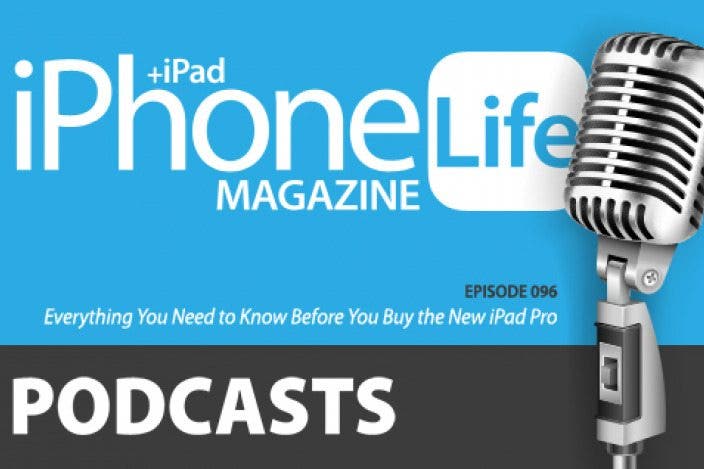
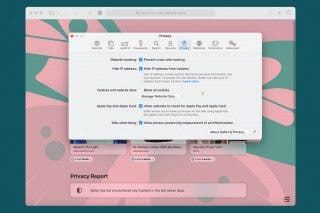
 Leanne Hays
Leanne Hays
 Rhett Intriago
Rhett Intriago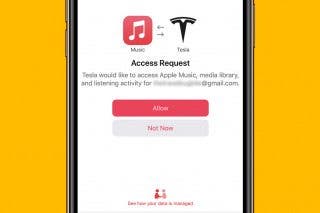
 Olena Kagui
Olena Kagui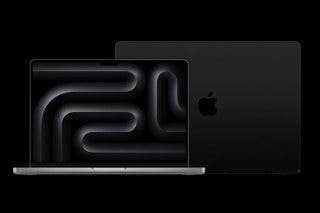
 Amy Spitzfaden Both
Amy Spitzfaden Both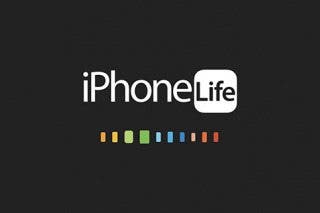
 Susan Misuraca
Susan Misuraca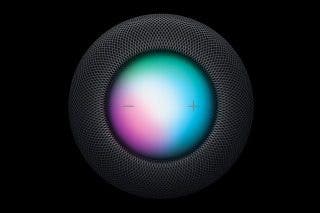
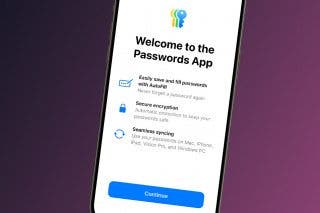
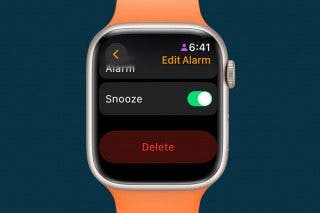
 Rachel Needell
Rachel Needell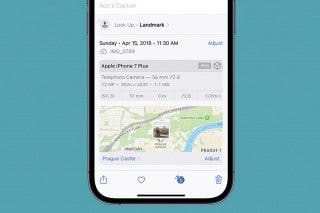
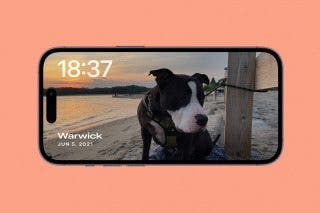
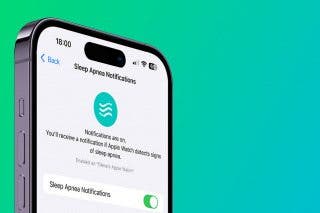
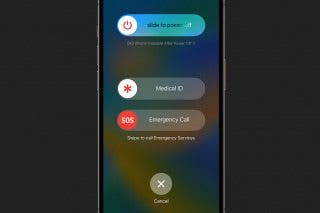

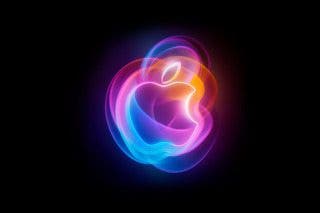
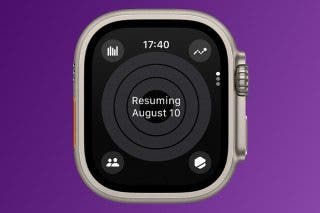
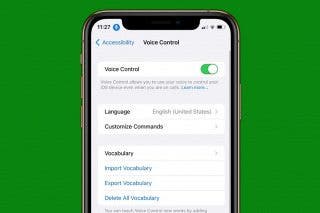
 Devala Rees
Devala Rees